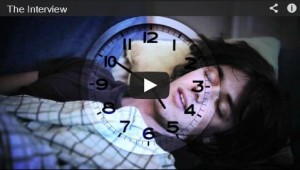 Phew! You made it through the interview. But, if you thought the pressure would let up, think again. Now the waiting game begins, and you’re tasked with finding the perfect balance between disinterested, not following up at all, and pushy, calling twice a day to see if a decision has been made. Once the critical thank-you note is in the mail, the next big milestone is the follow-up call.
Phew! You made it through the interview. But, if you thought the pressure would let up, think again. Now the waiting game begins, and you’re tasked with finding the perfect balance between disinterested, not following up at all, and pushy, calling twice a day to see if a decision has been made. Once the critical thank-you note is in the mail, the next big milestone is the follow-up call.
Because it’s sometimes difficult to gauge where a decision maker is in the interview process, you never know how much is riding on the short follow-up telephone conversation. Approach that important call with care by keeping these four tips in mind.
Ask the Right Questions
It’s critical that your last two questions during an interview are, “What are the next steps in the hiring process?” and “When can I expect to hear from you?” And, it is even more critical that you listen and take note of the answers. The interviewer’s response will provide the basis for crafting your follow-up call.
Do What They Said
While it might seem obvious, following the employer’s instructions is key at this stage of the game. If the interviewer tells you to call the HR manager in three days, then do it. This is another opportunity for you to prove that you are paying attention and can follow instructions.
Give It Time
Calling too soon can be just as bad as calling too late, so be strategic and purposeful about your timing. If you were told a decision would be made by a specific date, give it a few extra days before you make the call. Remember, the person who interviewed you probably has many other responsibilities, and filling the open position may not always take top priority.
Keep It Fresh
Before you make the phone call, consider a new nugget of information you can include in the conversation. Perhaps you can mention that you hope to see the interviewer at the next meeting for an association you both belong to. Or weave in an additional reason you think you’d be a good fit for the job. You want to continue to pique the employer’s curiosity so you remain top of mind.
Do you have additional tips on how to handle the follow-up call after an interview? Share them below in the comments section.





 Two job seekers compete, but only one will get the job offer. One uses practice and punctuality, while the other uses laziness and loitering. In this game of job searching, the difference between getting an offer and getting rejected is not only about being mentally ready, but also looking ready.
Two job seekers compete, but only one will get the job offer. One uses practice and punctuality, while the other uses laziness and loitering. In this game of job searching, the difference between getting an offer and getting rejected is not only about being mentally ready, but also looking ready.